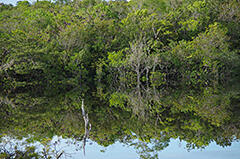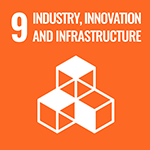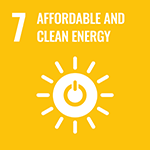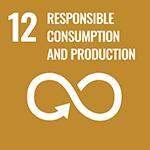Research on Ethanol Production from Sugarcane Wastes
Principal Investigator
ODA Recipient Country
Federative Republic of Brazil
Research Institutions in Japan
National Institute of Advanced Industrial Science and Technology (AIST)
Research Institutions in Counterpart Country
Federal University of Rio de Janeiro (UFRJ) / Federal University of Santa Catarina (UFSC)
Adoption fiscal year
FY 2008
Research Period
3 Years
Overview of the Research Project
Contribution to mitigating climate change by using existing resources effectively
There is increasing demand for bioethanol fuel produced from crops such as sugarcane and corn as an effective means for mitigating climate change without increasing the amount of CO2 in the atmosphere. However, there can be problems such as deficiency of raw materials due to competition with food and feed use, rising food prices, and deforestation due to increased cultivation area of crops. For these reasons, research and development is underway for the production of bioethanol from the bagasse that remains after the sugarcane is crushed to collect cane juice, and from wastes like straws. Bagasse and straws have rigid structures and contain components that cannot be converted into ethanol.
Construction of optimum fuel ethanol production system for the use of bagasse and straws
In addition to developing technology for breaking down the rigid raw materials with small energy input, a new yeast strain has been developed for fermentation. The goal of this project is to contribute to mitigating climate change through sustainable fuel production, and extension to other regions such as Southeast Asia is also planned.
Photo gallery

Fine grinding equipment at the National Institute of Advanced Industrial Science and Technology (AIST)
Research Project Web site
Press Release
Links
Projects
Contact Us
Japan Science and Technology Agency (JST)
Department of International Affairs
SATREPS Group
TEL : +81-3-5214-8085
Related articles by Category
- Climate Change
Environment / Energy
(Climate Change)
 Federative Republic of Brazil
Federative Republic of Brazil
Health Checkup for the World’s Lungs: Measuring the Carbon Stocks in the Amazon Forests
Carbon Dynamics of Amazonian Forests
- Brazil
Environment / Energy
(Global-scale environmental issues)
 Federative Republic of Brazil
Federative Republic of Brazil
Conserving the Precious Nature of the Amazon Basin with a New Field Museum Concept
Biodiversity conservation in Amazon based on a new concept of "Field Museum"
- Latin America
Disaster Prevention and Mitigation

 Republic of El Salvador
Republic of El Salvador
Protecting international port cities from compound disasters with dominostyle chains of destruction!
Compound Disaster Risk Reduction associated with Large Earthquakes and Tsunamis
- SDGs : Goal.9
Bioresources

 Republic of Colombia
Republic of Colombia
Enabling sustainable beef production by eliciting the power of cattle and grasslands on a digital platform!
Creation of Beef Value Chain by Optimizing Ruminal Microbiota and Grassland Management on Digital Platform






















